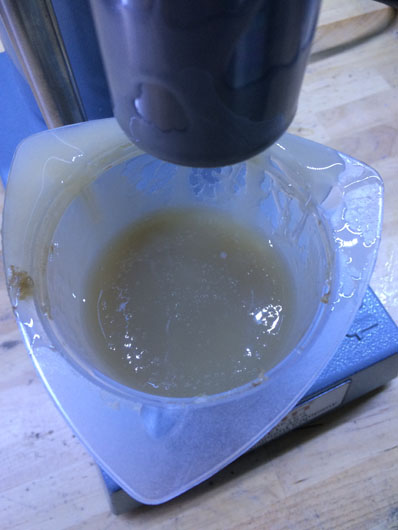Coiled tubing operations don’t require as many chemicals as hydraulic fracturing.
However, using the right chemicals can often make coiled tubing operations more effective and often cheaper.
Today we will take look at the top 5 chemicals used on most coiled tubing jobs.
Related: What is Coiled Tubing?
Chemicals Used for Coiled Tubing Operations
1. Metal to Metal Friction Reducers or Lubricants
High friction between the coiled tubing and the casing has a negative impact on the coiled tubing reach.
This especially becomes a problem on deeper wells.
Oftentimes vibrational tools are used to decrease the friction but in many cases, it is not enough to reach the desired depth at a reasonable speed.
That’s why metal to metal friction reducers are often used to decrease the friction between the coiled tubing and the casing.
This increases run-in hole speeds and allows coiled tubing to get deeper in the well.
Metal to metal friction reducers are usually pumped either continuously on the fly or in slugs when coiled tubing run in hole speed decreases below the optimal levels.
Tubing force simulations are usually performed before the job to predict when metal to metal chemicals should be introduced.
2. Hydraulic Friction Reducers
Hydraulic friction reducers are used to decrease pumping pressures by decreasing turbulence in the fluid.
Decreasing pumping pressure allows coiled tubing to last longer, saves fuel, and decreases pump maintenance.
Coiled tubing fatigue life is directly proportional to the pumping pressures.
Usually, polyacrylamide-based chemicals are used as hydraulic friction reducers.
It is also important to keep in mind that the salinity of the fluid has a negative impact both on pumping pressures and the effectiveness of friction reducers.
In general, the brine will result in higher pumping pressures and high salt tolerance friction reducers are usually used when pumping brine.
Hydraulic friction reducers are usually pumped continuously when the pumping pressure increase above the optimal levels.
Related: Top 10 Chemicals Used In Hydraulic Fracturing Process
3. H2S Inhibitors and Scavengers
Whenever work is done on the wells with H2S, scavengers, and inhibitors are usually pumped.
H2S scavengers are pumped to remove H2S from the working fluid.
H2S inhibitors are used to protect the coiled tubing from H2S by covering it with a thin protective film.
Unprotected exposure to H2S can be very costly and can cause unrepairable damage to the coiled tubing.
It also becomes more challenging to predict coiled tubing fatigue life after the string gets exposed to high levels of H2S.
In addition, H2S is a highly toxic gas, and usually, water coming from the well is not reused if there is any H2S in it, until it is treated with scavengers on or off location.
4. Linear Gels
Gels are oven pumped during the millout and cleanout operations to assist with debris lifting in the well.
Gels work great in lifting debris in the vertical sections of the well but do very little in helping to move debris in the lateral.
Because of this, there is a trend in the industry towards decreasing gel usage.
HEC (hydroxyethylcellulose) is one of the most common linear gels used for coiled tubing operations.
Gels are usually mixed at the fluid pump and pumped in slugs.
To keep track of the gel pumping efficiency, often testers will check their junk catchers to see how much debris is recovered after each gel pill.
Related: Top 10 Chemicals Used In Hydraulic Fracturing Process
5. Biocides
Biocides are used to kill the bacteria that can potentially damage coiled tubing.
Biocides only became common in the coiled tubing industry in the past 5-7 years and are usually used to pre-treat the fluid before the coiled tubing operation.
During the operation, they might be added to keep bacteria from growing and to treat any new fluid coming from the well.
Bronopol is one example of biocide chemicals used for coiled tubing operations.
Other Chemicals
There are also other less commonly used specialized chemicals that can be pumped depending on the job type.
Some examples are corrosion inhibitors, foams, iron inhibitors, pH control chemicals, scale inhibitors, clay controls, etc.
Read next: 18 Most Common Coiled Tubing Applications
